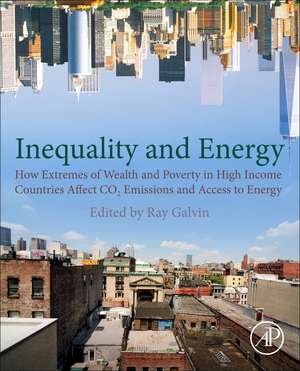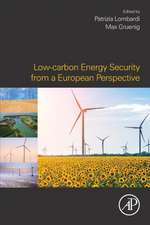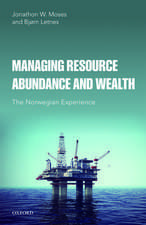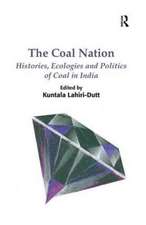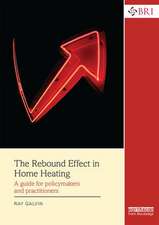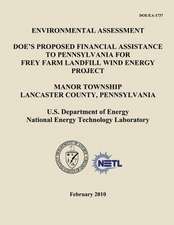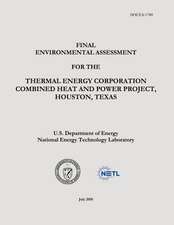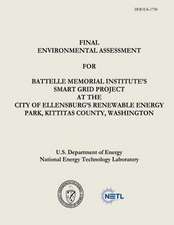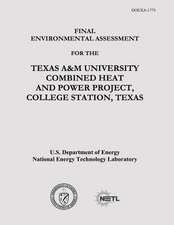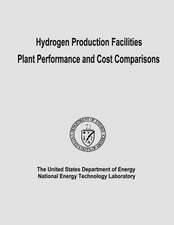Galvin - Economic Inequality and Energy Consumption in Developed Countries: How Extremes of Wealth and Poverty in High Income Countries Affect CO2 Emissions and Access to Energy
Editat de Ray Galvinen Limba Engleză Paperback – 24 oct 2019
Extreme economic inequality has increased within developed countries over the past three decades. The effects of inequality are now seen increasingly in health, housing affordability, crime and social cohesion. There are signs it may even threaten democracy. Researchers are also exploring its effects on energy consumption. One of their key findings is that less privileged groups have lost consistent access to basic energy services like warm homes and affordable transport, leading to huge disparities of climate damaging emissions between rich and poor.
- Provides overwhelming evidence of the persistent and increasing income inequality and wealth inequality in developed countries over the past three decades
- Showcases recent empirical work that explores correlates of this inequality with energy consumption behavior and some of the key problems of access to adequate energy services
- Shows the connections between these findings and the existing ways of researching energy consumption behavior and policy
Preț: 575.99 lei
Preț vechi: 632.95 lei
-9% Nou
Puncte Express: 864
Preț estimativ în valută:
110.23€ • 114.66$ • 91.00£
110.23€ • 114.66$ • 91.00£
Carte tipărită la comandă
Livrare economică 07-21 aprilie
Preluare comenzi: 021 569.72.76
Specificații
ISBN-13: 9780128176740
ISBN-10: 0128176741
Pagini: 360
Dimensiuni: 191 x 235 mm
Greutate: 0.62 kg
Editura: ELSEVIER SCIENCE
ISBN-10: 0128176741
Pagini: 360
Dimensiuni: 191 x 235 mm
Greutate: 0.62 kg
Editura: ELSEVIER SCIENCE
Public țintă
Graduate students and above in the area of energy consumption research, especially from the social science and economic perspectives. Policymakers seeking information for policy interventions including fiscal changes. A wider academic audience, namely those interested in inequality issues who may not necessarily be familiar with energy consumption issues. Think tanks and NGOs who are concerned about social effects of economic inequalityCuprins
PART 1 Theory and concepts: Bringing economic inequality into energy research
CHAPTER 1 Recent increases in inequality in developed
Ray Galvin
CHAPTER 2 What is money? And why it matters for social science in energy research
Ray Galvin
CHAPTER 3 Asymmetric structuration theory: A sociology for an epoch of extreme economic inequality
Ray Galvin
CHAPTER 4 Economic inequality, energy justice and the meaning of life
Ray Galvin
PART 2 Empirical findings: Energy and economic inequality in practice
CHAPTER 5 Energy poverty: Understanding and addressing systemic inequalities
Lucie Middlemiss
CHAPTER 6 Housing tenure and thermal quality of homes—How home ownership affects access to energy services
Nicola Terry
CHAPTER 7 Cold homes and Gini coefficients in EU Countries
Ray Galvin
CHAPTER 8 Why are women always cold? Gendered realities of energy injustice
Minna Sunikka-Blank
CHAPTER 9 Inequality and renewable electricity support in the European Union
Lawrence Haar
CHAPTER 10 Energy poverty research: A perspective from the poverty side
Ray Galvin
PART 3 Reflections
CHAPTER 11 Sustainable energy transition and increasing complexity: Trade-offs, the economics perspective and policy implications
Reinhard Madlener
CHAPTER 12 Can economic inequality be reduced? Challenges and signs of hope in 2019
Danny Dorling
CHAPTER 1 Recent increases in inequality in developed
Ray Galvin
CHAPTER 2 What is money? And why it matters for social science in energy research
Ray Galvin
CHAPTER 3 Asymmetric structuration theory: A sociology for an epoch of extreme economic inequality
Ray Galvin
CHAPTER 4 Economic inequality, energy justice and the meaning of life
Ray Galvin
PART 2 Empirical findings: Energy and economic inequality in practice
CHAPTER 5 Energy poverty: Understanding and addressing systemic inequalities
Lucie Middlemiss
CHAPTER 6 Housing tenure and thermal quality of homes—How home ownership affects access to energy services
Nicola Terry
CHAPTER 7 Cold homes and Gini coefficients in EU Countries
Ray Galvin
CHAPTER 8 Why are women always cold? Gendered realities of energy injustice
Minna Sunikka-Blank
CHAPTER 9 Inequality and renewable electricity support in the European Union
Lawrence Haar
CHAPTER 10 Energy poverty research: A perspective from the poverty side
Ray Galvin
PART 3 Reflections
CHAPTER 11 Sustainable energy transition and increasing complexity: Trade-offs, the economics perspective and policy implications
Reinhard Madlener
CHAPTER 12 Can economic inequality be reduced? Challenges and signs of hope in 2019
Danny Dorling
